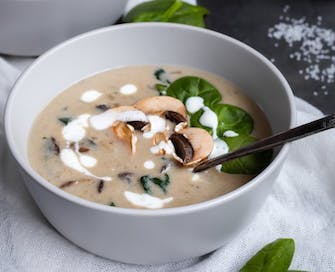Meditating on the Word of God is not the transcendental endeavour which...
Read More1 June 2020• Banner • 2 Comments
Glorifying Christ in everything
1 June 2020• Banner • 2 Comments
Glorifying Christ in everything
1 June 2020• Banner • 2 Comments
Glorifying Christ in everything
1 June 2020• Banner • 2 Comments
Glorifying Christ in everything
1 June 2020• Banner • 2 Comments
Glorifying Christ in everything
Scripture Meditation
Editor's Notes
Two to Mango
Spiritual Warfare
Need Counselling?
What We Reviewed
Divine Reflections
Stop fighting over Jesus
Salvation through Christ Jesus is by GRACE ALONE, through FAITH ALONE, and...
Read MoreAmazine
Why do we eat Easter eggs?
Every chocolate lover has the Easter holidays circled in their...
Read MoreIn The News
Jesus removed from Easter trail
English Heritage, a prominent UK charity responsible for many of the country’s historic...
Read More
Live Prayer Room
Saving Prayer.. .
Thank you for submitting your prayer request. Cast all your anxieties on him, because he cares for you. May our Lord Jesus Christ offer you hope, comfort and peace. Christ & Co’s prayer warriors across the world will be praying for your needs. Please share your testimony soon! God bless.
There was an error







 Lord Jesus have mercy
Lord Jesus have mercy Pray for my brother Sunil .. for his property commission as soon as possible
Pray for my brother Sunil .. for his property commission as soon as possible 
 I praise God for his mercy and Love towards us.
I praise God for his mercy and Love towards us.
 amen please pray for my daughter Andrea , she expecting her 1st baby and is due 1 st week of December the doctor has told her she may have to go for c section she’s been worried stressed and crying please keep her in your prayers may Jesus bless her and make her journey of motherhood safe and pray her baby is safe and Andrea too amen
amen please pray for my daughter Andrea , she expecting her 1st baby and is due 1 st week of December the doctor has told her she may have to go for c section she’s been worried stressed and crying please keep her in your prayers may Jesus bless her and make her journey of motherhood safe and pray her baby is safe and Andrea too amen 
 amen
amen



 .
. Jesus! Love you Jesus!
Jesus! Love you Jesus!




 Amen
Amen 

 Praise be his holy name.
Praise be his holy name. .
.


 .
.






 .
.

 My daughter in law is having severe back pain.. Pl pray for speedy recovery
My daughter in law is having severe back pain.. Pl pray for speedy recovery  My sister in law is having eye pain from her retina water is flowing .. pl keep in prayers for speedy recovery n the water doesn’t flow
My sister in law is having eye pain from her retina water is flowing .. pl keep in prayers for speedy recovery n the water doesn’t flow 
 .
.
 .
. .
.
 please intercede for me
Pls pray for my intentions. I am quite depressed with all problems I have been facing
please intercede for me
Pls pray for my intentions. I am quite depressed with all problems I have been facing



 .
.
 Please pray for my October one week leave which I will be asking next month.
Please pray for my October one week leave which I will be asking next month.


 I pray to God in the name of Jesus to send me his Lawyer to fight my case.
I pray to God in the name of Jesus to send me his Lawyer to fight my case.



 Thank you
Thank you  Praise the lord
Praise the lord .
.
 I have a new role I like to apply..maybe that would be better if I get that job.
I have a new role I like to apply..maybe that would be better if I get that job. from Germany. She had a birth mark in her back n the patch had started to enlarge n they hv removed it n had sent for biopsy.
Mum is a Sri Lankan n father is a German n I doubt they know Jesus or go to church.
Pls pray for her healing, to be cancer free n to know Jesus our divine healer. Thank you for ur prayers
from Germany. She had a birth mark in her back n the patch had started to enlarge n they hv removed it n had sent for biopsy.
Mum is a Sri Lankan n father is a German n I doubt they know Jesus or go to church.
Pls pray for her healing, to be cancer free n to know Jesus our divine healer. Thank you for ur prayers 

 .
.


 .
Lord Jesus, heal my husband of his warts which just pop up anywhere on his body. Cover him with ur precious blood. Amen
.
Lord Jesus, heal my husband of his warts which just pop up anywhere on his body. Cover him with ur precious blood. Amen  .
.
 I come to throne of Grace to ask for HEALING
I come to throne of Grace to ask for HEALING  for my daughter
for my daughter  she has Lupus and strokes that affect her cognition thinking to make sound decisions and her mobility skills please anointed this petition and don’t let it return to me void
she has Lupus and strokes that affect her cognition thinking to make sound decisions and her mobility skills please anointed this petition and don’t let it return to me void 

 I’m asking the prayer in Your Darling Son Name Jesus Christ. ~Amen
I’m asking the prayer in Your Darling Son Name Jesus Christ. ~Amen .
.






 .
.
 .
. .
.



 I believe mother you will heal them both.
I believe mother you will heal them both.





 Thank you
Thank you  Praise the lord.
Praise the lord.
 .
.






 .
. . Hallelujah praise d Lord, our powerful n mighty God.
. Hallelujah praise d Lord, our powerful n mighty God.
 feeling very upset
Pls pray for us
feeling very upset
Pls pray for us


 .
. .
.
 pray for me …..my in-laws destroyed my life by telling lies to my husband….please please please pray and let my husband eyes gets open so that he can see what's wrong and right.
pray for me …..my in-laws destroyed my life by telling lies to my husband….please please please pray and let my husband eyes gets open so that he can see what's wrong and right.
 Am sending this message in regards to a prayer request for myself, for my sister and my dad. My request is I need to get 50 marks for an assignment to get myself registered with the nursing board to work as a registered nurse in Australia second request is for my sister as she is in newzealand waiting for her nursing registration and offer letter to work as a registered nurse. Third request is for my dad who is having severe shoulder pain in both arms. Kindly uphold all of us in your great prayers.
Thank you
Kind regards
Steffy
Am sending this message in regards to a prayer request for myself, for my sister and my dad. My request is I need to get 50 marks for an assignment to get myself registered with the nursing board to work as a registered nurse in Australia second request is for my sister as she is in newzealand waiting for her nursing registration and offer letter to work as a registered nurse. Third request is for my dad who is having severe shoulder pain in both arms. Kindly uphold all of us in your great prayers.
Thank you
Kind regards
Steffy
 Asking prayers for my son Adriel, he is studying in Canada. Asking our Lord to bless his eyes and his overall health. O Lord please cover my son with your precious blood.
Asking prayers for my son Adriel, he is studying in Canada. Asking our Lord to bless his eyes and his overall health. O Lord please cover my son with your precious blood.


 Thank you
Thank you 


 Since 5years prayer for gift of second child
Since 5years prayer for gift of second child 
 realy fedup
realy fedup


 ..Please pray that Jesus cures her.
..Please pray that Jesus cures her.
 .
.





 pray for my family
pray for my family  and for a good job.
and for a good job.
 ..please pray. She is also paraplegic and on the wheelchair.
..please pray. She is also paraplegic and on the wheelchair. . God bless.
. God bless.





 .
. .
.
 The agent with whom I have put process I don't know him I get scared most of the time for that thinking my visa may get rejected. Please please pray for me n my process.
The agent with whom I have put process I don't know him I get scared most of the time for that thinking my visa may get rejected. Please please pray for me n my process.
 Pray God bless my family with happiness, good health, peace of mind and prosperity Amen
Pray God bless my family with happiness, good health, peace of mind and prosperity Amen 

 .
. Lord bless us and touch our life
Lord bless us and touch our life 
 .
.



 .
. .
. Thanks.
Thanks. may our family complete
may our family complete .
. .
. .
. .
. .
. .
. .
.
 .
. .
. .
.
 .
.









 If it is will of God..I get this job.
If it is will of God..I get this job. .
.








 for love peace joy, patience, ……… all added to kingdom of God
Pray for my mother Alcina she has gallbladder stones and ulcers getting pain.
for love peace joy, patience, ……… all added to kingdom of God
Pray for my mother Alcina she has gallbladder stones and ulcers getting pain. bless my brother Manuel dsouza with good life partner soon
bless my brother Manuel dsouza with good life partner soon please have mercy on us
please have mercy on us Lord we waiting for him to get married…. No good response is coming Lord pls make a way for him
Lord we waiting for him to get married…. No good response is coming Lord pls make a way for him Warm regards
Abin Antony
Warm regards
Abin Antony


 Husband always making fun if I go to church.
Husband always making fun if I go to church.


 was diagnosed with 4th stage colon cancer .
was diagnosed with 4th stage colon cancer .


 claim healing in ur name
claim healing in ur name
 .
. Praise the Lord.
Praise the Lord.
 Thank you.
Thank you.








 Praying hard for this intention.
Praying hard for this intention. I believe he is healed in the name of Jesus, Amen.
I believe he is healed in the name of Jesus, Amen. .
.


 Please pray for my son also
Please pray for my son also 


 Please pray for my son to get a good job and visa
Please pray for my son to get a good job and visa 
 .
.
 …all these has caused lot of stress again.
…all these has caused lot of stress again. They aren't taking care of his needs. If only he could have spoken. Simply planning to keep him away
But God hasn't done that even.
They aren't taking care of his needs. If only he could have spoken. Simply planning to keep him away
But God hasn't done that even.
 .
. May I pls request your prayers for my friend Dinushi’s dad Mr de Britto. He is going for the open heart surgery today at 2pm till 9.30pm
Keep him in your powerful prayers….Thank you..
May I pls request your prayers for my friend Dinushi’s dad Mr de Britto. He is going for the open heart surgery today at 2pm till 9.30pm
Keep him in your powerful prayers….Thank you.. .
. We still have tribunal for rent in prev house this month. And at work they have still not given my confirmation letter. They processed other peoples on same batch.
We still have tribunal for rent in prev house this month. And at work they have still not given my confirmation letter. They processed other peoples on same batch. My Ammi krishanthi Sooriyaarachchi Silva is getting discharged today. Thank you very much for the prayers
My Ammi krishanthi Sooriyaarachchi Silva is getting discharged today. Thank you very much for the prayers  God bless you all.
God bless you all.


 .
.

 happiness to his parents
happiness to his parents My Testimony
My Testimony  The ordeal started when we went out to bring in my daughter's birthday. I slipped and fell on the steps and opend up the back of my head which needed 4 sutures. A few days later I took a CT to clear any doubts of internal bleeding or fracture of my skull from the fall. While the report cleared up doubts about the injury, it showed that I had a tumour that had grown to a moderate size. My family and I were as shocked as you could imagine, I still am to be quite frank. The fall was indeed a blessing in disguise. As all my doctors told me so, this kind of tumour is generally found, after a lot of damage has already been done. When it's too late generally. God must love me so much, to reveal it at the onset.
What was a difficult and blurry night, had now become a miraculous one at that. If I had not fallen, I would not have had any reason to take a CT. Thanks to the CT we were able to find the tumour at such an early stage. We immediately consulted a specialist (Neuro Surgeon), with the help of my brother's doctor. His recommendation was to have it removed immediately, before any further symptoms arises (such as seizures, speech and/or sight impairment). He advised us to not wait too long as I had neglected most of the symptoms I have had for the past 4+ years. To think I had this thing growing in me unnoticed is just mind blowing. God was with us every step of the way. The surgery took place exactly 3 days later, and the biopsy came back all clear. The tumour was benign. Another miracle, It has all been quite an ordeal, a painful one. But I know now that God has a plan for me and this is my testimony of his love, grace and mercy. I am blessed to have had so many people lifting me up in prayer. I thank God for each one of you, God bless you and your loved ones. I am a work in progress, still healing and fighting my way through it all. A vessel to show the world that, even in every bad situation, it's for our good. I was always a worrier but now call myself a warrior, it's a gentle reminder to everyone, that miracles still do happen, coz I am one. I am ever so grateful to my loved ones near and far who have helped me get through this phase. I got my Christmas miracle and get to thank HIM for this New year. All praise and glory to the Lord and his Holy Mother. Only God can turn a mess into a message, a test into a testimony, a trial into a triumph, a victim into a victory
The ordeal started when we went out to bring in my daughter's birthday. I slipped and fell on the steps and opend up the back of my head which needed 4 sutures. A few days later I took a CT to clear any doubts of internal bleeding or fracture of my skull from the fall. While the report cleared up doubts about the injury, it showed that I had a tumour that had grown to a moderate size. My family and I were as shocked as you could imagine, I still am to be quite frank. The fall was indeed a blessing in disguise. As all my doctors told me so, this kind of tumour is generally found, after a lot of damage has already been done. When it's too late generally. God must love me so much, to reveal it at the onset.
What was a difficult and blurry night, had now become a miraculous one at that. If I had not fallen, I would not have had any reason to take a CT. Thanks to the CT we were able to find the tumour at such an early stage. We immediately consulted a specialist (Neuro Surgeon), with the help of my brother's doctor. His recommendation was to have it removed immediately, before any further symptoms arises (such as seizures, speech and/or sight impairment). He advised us to not wait too long as I had neglected most of the symptoms I have had for the past 4+ years. To think I had this thing growing in me unnoticed is just mind blowing. God was with us every step of the way. The surgery took place exactly 3 days later, and the biopsy came back all clear. The tumour was benign. Another miracle, It has all been quite an ordeal, a painful one. But I know now that God has a plan for me and this is my testimony of his love, grace and mercy. I am blessed to have had so many people lifting me up in prayer. I thank God for each one of you, God bless you and your loved ones. I am a work in progress, still healing and fighting my way through it all. A vessel to show the world that, even in every bad situation, it's for our good. I was always a worrier but now call myself a warrior, it's a gentle reminder to everyone, that miracles still do happen, coz I am one. I am ever so grateful to my loved ones near and far who have helped me get through this phase. I got my Christmas miracle and get to thank HIM for this New year. All praise and glory to the Lord and his Holy Mother. Only God can turn a mess into a message, a test into a testimony, a trial into a triumph, a victim into a victory 

 Love you lots
Love you lots 


 Amen
Amen
 iam missing my family a lot it’s bein a year am far from them lord please unite us together
iam missing my family a lot it’s bein a year am far from them lord please unite us together



 and may lord reales tension of f in law
and may lord reales tension of f in law  plx pray
plx pray



 Every time I feel cheated and put into such difficult situation. I don't know
Every time I feel cheated and put into such difficult situation. I don't know 




 Lord have mercy
Lord have mercy





 .
.










 Few years back she had a uterus and the other ovary removed. Please pray for her
She was in your prayers then. All the prayers helped her to recover fast.
Few years back she had a uterus and the other ovary removed. Please pray for her
She was in your prayers then. All the prayers helped her to recover fast.
 Thank you very much.
Thank you very much. .
. inneed of a job seriously atleast I give education to my children. Please pray for me.
inneed of a job seriously atleast I give education to my children. Please pray for me.




 . Please pray for her
. Please pray for her  . May the precious blood of Jesus wash away all her blocks and she be set free. She too is fed up with her sickness and diet restrictions. Please pray.
. May the precious blood of Jesus wash away all her blocks and she be set free. She too is fed up with her sickness and diet restrictions. Please pray. .
. My husband has cleared the first test round and I praise and thank you for being wit him . Tomorrow he has his second interview round and it is not anyone else but you who is going to be present there and take his round so i surrender him and all those giving their rounds to be with them remove any fear and guide them to give the right answers . Not their will but let your will be done . Praise and thank you Jesus . Thank u mumma Mary for interceding and being with all those cleared their first step .
My husband has cleared the first test round and I praise and thank you for being wit him . Tomorrow he has his second interview round and it is not anyone else but you who is going to be present there and take his round so i surrender him and all those giving their rounds to be with them remove any fear and guide them to give the right answers . Not their will but let your will be done . Praise and thank you Jesus . Thank u mumma Mary for interceding and being with all those cleared their first step . for my Ansloyd
for my Ansloyd
 .
.



 thank you Jesus for the blessings
thank you Jesus for the blessings











 I come to you with the faith that everytime I have asked your prayers, my prayers have been answered. Even if you scroll our chat, you will see that God has answered my prayers through you. With the same faith I come to you for my uncle now. Pls pls pray for him.
I come to you with the faith that everytime I have asked your prayers, my prayers have been answered. Even if you scroll our chat, you will see that God has answered my prayers through you. With the same faith I come to you for my uncle now. Pls pls pray for him.
 for me .. that I am able to recover all my money held by the banks over the years .
Thank you! Praise the Lord!!!
for me .. that I am able to recover all my money held by the banks over the years .
Thank you! Praise the Lord!!!

 ..I have asked my boss for leave in December and he has said a NO..he usually doesn't like me but I don't want to have conflict with him so don't want to ask his higher ups as it will worsen the situation.I request a prayer that Jesus changes his mind and he willingly agrees for my leave as I need to be in India with my family for Christmas.
..I have asked my boss for leave in December and he has said a NO..he usually doesn't like me but I don't want to have conflict with him so don't want to ask his higher ups as it will worsen the situation.I request a prayer that Jesus changes his mind and he willingly agrees for my leave as I need to be in India with my family for Christmas. Please pray for me that I may recover soon as I got Cold, fever and throat infection. Also pray for my Aunty Martha that she may recover soon as she is COVID positive .
Please pray for me that I may recover soon as I got Cold, fever and throat infection. Also pray for my Aunty Martha that she may recover soon as she is COVID positive .
 and come out from alcohol and lying spirits.
and come out from alcohol and lying spirits. .
.

 .
.
 .
.
 ..Let the truth prevail soon and we may have peace at our work place.
..Let the truth prevail soon and we may have peace at our work place.  . Pray for me and my fellow colleagues. Thank you.
. Pray for me and my fellow colleagues. Thank you.








 .
.





 .
.

 pray for my husband. Saji Mon Joseph no job for 9 months. Pray for my children Joshua and Joanna . We are living together in KSA. Recidency I'd expired for three of them.now. I wish we All together live here. If my husband didn't get a job . They must exit from here..
pray for my husband. Saji Mon Joseph no job for 9 months. Pray for my children Joshua and Joanna . We are living together in KSA. Recidency I'd expired for three of them.now. I wish we All together live here. If my husband didn't get a job . They must exit from here.. 



 .
.
 .
.



 .
. .
.
 I been in Maxlife Insurance Company as Advisor and Kotak Life as Agency Partner ,both are part time Job salary based on commission bases.
Please pray for me that i do well in this part time Job.
I been in Maxlife Insurance Company as Advisor and Kotak Life as Agency Partner ,both are part time Job salary based on commission bases.
Please pray for me that i do well in this part time Job.











 Thank you for your prayers. God bless you
Thank you for your prayers. God bless you 
 for me and my husband… am concerned and hurt by everything… need prayers to both come together as one
for me and my husband… am concerned and hurt by everything… need prayers to both come together as one Sincerely,
Leo Sourisseau
Winnipeg, Manitoba, Canada
worldpeacenow4all@gmail.com
Also, please visit the website of
prayerforsecondcoming.com
Also visit the new prayer website of
prayertouseoursufferings.com
PLEASE – Pray the prayers above
to help Jesus to triumph on Earth
soon! Jesus is the best eternal
leader for humanity – vote for
Jesus, with your prayers!
Sincerely,
Leo Sourisseau
Winnipeg, Manitoba, Canada
worldpeacenow4all@gmail.com
Also, please visit the website of
prayerforsecondcoming.com
Also visit the new prayer website of
prayertouseoursufferings.com
PLEASE – Pray the prayers above
to help Jesus to triumph on Earth
soon! Jesus is the best eternal
leader for humanity – vote for
Jesus, with your prayers!  So please add these two prayers
above to your prayer arsenal
– but they'll only work if you use them!
And please ask as many other people
as you can to pray these above prayers too!
Thanks so much,
everyone!
Pray without ceasing!
Pray, pray, pray!
For Jesus, and for humanity!
Everyone!
Please come very soon Jesus,
and please save us all !
So please add these two prayers
above to your prayer arsenal
– but they'll only work if you use them!
And please ask as many other people
as you can to pray these above prayers too!
Thanks so much,
everyone!
Pray without ceasing!
Pray, pray, pray!
For Jesus, and for humanity!
Everyone!
Please come very soon Jesus,
and please save us all !

 I believe that with God, everything is possible.
I believe that with God, everything is possible.




 Lord Jesus please have mercy on me!
Lord Jesus please have mercy on me! .
.
 I'm tired
I'm tired Thank you very much.
Thank you very much. still in financial debts.
still in financial debts.
 for a full time job in a good company for my recently graduates son Where he has applied. I know Jesus will fulfill our need .. in Jesus name . Amen
for a full time job in a good company for my recently graduates son Where he has applied. I know Jesus will fulfill our need .. in Jesus name . Amen I humbly ask for prayers so That he gets his certificate soon.
I humbly ask for prayers so That he gets his certificate soon.


 Praise the Lord.
Praise the Lord.

 . Thanks for yr prayers team christ and Co. May God bless u all.
. Thanks for yr prayers team christ and Co. May God bless u all.




 Am in alot of debts please.
Am in alot of debts please. Thank you for praying for me just in lots of tears for this journey thank you.
Thank you for praying for me just in lots of tears for this journey thank you.






















 Protect my vehicles from all evil attacks
Protect my vehicles from all evil attacks


 Thank you Jesus, Praise you Jesus!
Thank you Jesus, Praise you Jesus! .
.
 and thank you everyone at Christ and co. Who's praying for us
and thank you everyone at Christ and co. Who's praying for us






 Am in alot of debts and my children's education ( school fees)
Am in alot of debts and my children's education ( school fees)






 soon. Prayers for very good job offers from very good companies very veey soon so he can begin his career
soon. Prayers for very good job offers from very good companies very veey soon so he can begin his career
 And my babies to keep dam away from all sickness n evil eye.
And my babies to keep dam away from all sickness n evil eye.







 .
Thank you all for your prayers, may God bless you
.
Thank you all for your prayers, may God bless you 
 God bless you all
God bless you all

 To be in good faith.
To get rid of unnecessary use of devices.
To be obedient.
To be in good faith.
To get rid of unnecessary use of devices.
To be obedient.




 have mercy on this family Lord Jesus
have mercy on this family Lord Jesus 
 pray for my husband Saji Joseph lost his job from 5 months.
pray for my husband Saji Joseph lost his job from 5 months.







 i am blessed with a job right now and with a good organization. I love u lord u can move mountains and make impossible possible.
You have plans for me and never seen me in trouble i praise and thank u lord for this job opportunity.
i am blessed with a job right now and with a good organization. I love u lord u can move mountains and make impossible possible.
You have plans for me and never seen me in trouble i praise and thank u lord for this job opportunity.
 pray for a stable job and good career . I pray for all the jobless and all those who need financial help Jesus bless them with the best and be their refuge. Surrender my boss as well to be good and do a verification and not play with my future as having job is very necessary for me . Thank u jesus i praise u lord
pray for a stable job and good career . I pray for all the jobless and all those who need financial help Jesus bless them with the best and be their refuge. Surrender my boss as well to be good and do a verification and not play with my future as having job is very necessary for me . Thank u jesus i praise u lord 
 My boss given negative verification for my company i was suppose to join and i lost that job
My boss given negative verification for my company i was suppose to join and i lost that job 






 Please pray for me for a life partner.
Please pray for me for a life partner.













 PRAY FOR MY INTENTION
PRAY FOR MY INTENTION




 I trust in you Jesus
I trust in you Jesus 










 I'm in alot of debts and am truly stressed. That my children can't attend school because of lack of fees!
I'm in alot of debts and am truly stressed. That my children can't attend school because of lack of fees!

 Jesus son of David everliving God have mercy on me and my child
Jesus son of David everliving God have mercy on me and my child



































 Anyway pls keep on praying for my father, mother and as well.
Anyway pls keep on praying for my father, mother and as well. and for all blessings on me and my family for having saved us in road accident I called out to my Lord God and he answered me thank you Lord.
Please pray for Agust who is suffering from low haemoglobin count pray that he doesn't have to be hospitalized praise and glory to God
and for all blessings on me and my family for having saved us in road accident I called out to my Lord God and he answered me thank you Lord.
Please pray for Agust who is suffering from low haemoglobin count pray that he doesn't have to be hospitalized praise and glory to God








 Please take me my husband David, my son James and myself safely back to Dubai. Protect and save us all in Dubai and the entire world of this Iris, Please end this misery dear Jesus for all those who are sick, not sick seriously ill and dying Lord have Mercy on us all
Please take me my husband David, my son James and myself safely back to Dubai. Protect and save us all in Dubai and the entire world of this Iris, Please end this misery dear Jesus for all those who are sick, not sick seriously ill and dying Lord have Mercy on us all 


 I lift up all my family members to you eaach and wrbryo e of us all 8 members into Thy Loving Ha D's Amen and extended family members, maids, workers all all poor, homeless jobless. Laborers, all our lives, healkt, jobs, security etc etc Amen all who have asked me for prayer from this viris save us all, protect and show us all your Mercy dear Lord
I lift up all my family members to you eaach and wrbryo e of us all 8 members into Thy Loving Ha D's Amen and extended family members, maids, workers all all poor, homeless jobless. Laborers, all our lives, healkt, jobs, security etc etc Amen all who have asked me for prayer from this viris save us all, protect and show us all your Mercy dear Lord 

 thank and praise you Jesus pls cover me and all my loved ones v specially in your Precious Blood all all all all of us Lord Zach and famiky Yasmin Greg all my husband son sisters nieces nephew everything and everyone dear Lord
thank and praise you Jesus pls cover me and all my loved ones v specially in your Precious Blood all all all all of us Lord Zach and famiky Yasmin Greg all my husband son sisters nieces nephew everything and everyone dear Lord 




 please Lord help me
please Lord help me 





 urgently..I am afraid. She is Alba Correia, 66 years. Tomorrow she is going to be operated..please pray that the surgery goes well.
urgently..I am afraid. She is Alba Correia, 66 years. Tomorrow she is going to be operated..please pray that the surgery goes well.













 Praying also for my daughter married life and her relationship with her in laws
Praying also for my daughter married life and her relationship with her in laws  Thank you, God bless
Thank you, God bless 




 ♥️
♥️

 We need peace
We need peace 

 my children are not in school due to lack of school fees
my children are not in school due to lack of school fees  please pray for me.
please pray for me. And for my son in his studies. Jesus please guide him.
And for my son in his studies. Jesus please guide him. Thankyou Jesus
Thankyou Jesus






 He’s also suffering from kidney failure and would now require dialysis 3 times a week.
We ask for mercy and your precious blood to heal and strengthen him! Praise you Jesus, Thank you Jesus!
He’s also suffering from kidney failure and would now require dialysis 3 times a week.
We ask for mercy and your precious blood to heal and strengthen him! Praise you Jesus, Thank you Jesus!














 Amen.
Amen.



















 ! Wish him a quick recovery and return home safe and sound.
Thank you
! Wish him a quick recovery and return home safe and sound.
Thank you









 Save us Lord,you are our God
Save us Lord,you are our God


























 Thank you Jesus
Thank you Jesus
 Amen
Amen









 everything went on well. Operation successfully done. I'm back home today.. . All thanks and glory be to God
everything went on well. Operation successfully done. I'm back home today.. . All thanks and glory be to God 








 Tomorrow is my operation please uphold me in prayers
Tomorrow is my operation please uphold me in prayers 







 Thank you all so much for your prayers for me.
Thank you all so much for your prayers for me.








 my mother had her scan today and doctor too was far happy seeing her scan reports which was 90% healthy. I trusted this before writing the message here. On 4th of October she had her blood test if CA125 (ovarian cancers tracking) which showed high value of 680 which is supposed to be 35 snd less, and this happened after 8 cycles of chemo. I have trust on Jesus and mother mary she will be cured completely from this disease, as her scan miraculously clean today. Please continue to pray for my mother. God bless you. I am sure i will testify soon the god’s healing on my mother.
my mother had her scan today and doctor too was far happy seeing her scan reports which was 90% healthy. I trusted this before writing the message here. On 4th of October she had her blood test if CA125 (ovarian cancers tracking) which showed high value of 680 which is supposed to be 35 snd less, and this happened after 8 cycles of chemo. I have trust on Jesus and mother mary she will be cured completely from this disease, as her scan miraculously clean today. Please continue to pray for my mother. God bless you. I am sure i will testify soon the god’s healing on my mother.























 as they go through tuff situation
as they go through tuff situation





 Tomorrow Sept 17, is my 55th Birthday, Praise God for the gift of life, please keep me in your prayers, pls say a special prayer for me and my family, my one desire is to purchase my own home/house, as I don't have one, praying for a financial Blessing so I can afford to purchase one. Been renting or living with our daughter for 21 yrs. Jesus I trust in you, mama Mary and St. Joseph pray for me and my family. God Bless.
Tomorrow Sept 17, is my 55th Birthday, Praise God for the gift of life, please keep me in your prayers, pls say a special prayer for me and my family, my one desire is to purchase my own home/house, as I don't have one, praying for a financial Blessing so I can afford to purchase one. Been renting or living with our daughter for 21 yrs. Jesus I trust in you, mama Mary and St. Joseph pray for me and my family. God Bless.




 Thank you Lord Jesus
Thank you Lord Jesus










 groups going an make a grotto ‘ there nun in are villages so anyone can come in an pray “ when they like “ if it’s in gods will to be done
groups going an make a grotto ‘ there nun in are villages so anyone can come in an pray “ when they like “ if it’s in gods will to be done 









 Amen. I m on medicine now.
Amen. I m on medicine now.
 please ‘ my mother is Curson us so badly because iv came out that she new I was getting sexually abused as a child an she new “ she saying evil about my daughter savannah saying she’ll never be happy an find true love please keep her in prayer that’s all she won’t s is to find a good Catholic husband “ an for my son Geordie to find work he’s going though a very Tuff time an very depressed in he’s self he’s not long out of prison “ an me an my savannah been in a lady refuge for 18 months “ just now got a properly “ an the money we was saving to do it out some took it we need prayers so bad thank you
please ‘ my mother is Curson us so badly because iv came out that she new I was getting sexually abused as a child an she new “ she saying evil about my daughter savannah saying she’ll never be happy an find true love please keep her in prayer that’s all she won’t s is to find a good Catholic husband “ an for my son Geordie to find work he’s going though a very Tuff time an very depressed in he’s self he’s not long out of prison “ an me an my savannah been in a lady refuge for 18 months “ just now got a properly “ an the money we was saving to do it out some took it we need prayers so bad thank you  god bless
god bless







 Also please pray that he never gets convulsions again.
Also please pray that he never gets convulsions again.






 Please my humble
Please my humble  request to u bro…They change their mind and send this month end of august .pl… pray for me .
request to u bro…They change their mind and send this month end of august .pl… pray for me .




 .
Thank u
.
Thank u 




 Also please pray that he never gets convulsions again.
Also please pray that he never gets convulsions again.
 Also please pray that he never gets convulsions again.
Mother Mary be with us through out our journey today and guide our every step.
Also please pray that he never gets convulsions again.
Mother Mary be with us through out our journey today and guide our every step.


 Also please pray that he never gets convulsions again.
Also please pray that he never gets convulsions again. Also please pray that he never gets convulsions again.
Also please pray that he never gets convulsions again.

 Of hell
Of hell


 Also please pray that he never gets convulsions again.
Also please pray that he never gets convulsions again.
 I need my Jesus at this time to heal me. I m worried.
I need my Jesus at this time to heal me. I m worried. Also please pray that he never gets convulsions again.
Also please pray that he never gets convulsions again.
 Also please pray that he never gets convulsions again.
Also please pray that he never gets convulsions again.
 Also please pray that he never gets convulsions again.
Also please pray that he never gets convulsions again. Also please pray that he never gets convulsions again.
Also please pray that he never gets convulsions again.












 Also please pray that he never gets convulsions again.
Also please pray that he never gets convulsions again. Also please pray that he never gets convulsions again.
Also please pray that he never gets convulsions again.


 God bless your team.
God bless your team.
 Also please pray that he never gets convulsions again.
Also please pray that he never gets convulsions again.


 pray for my finances one lady is sitting with our money she not giving I am fighting case for that she not please
pray for my finances one lady is sitting with our money she not giving I am fighting case for that she not please  pray she change her mind and give our money.
I just want to move my life with my daughter I want to take divorce and move on I am tired of abusive language and married realtiship please pray for me or I get good job please
pray she change her mind and give our money.
I just want to move my life with my daughter I want to take divorce and move on I am tired of abusive language and married realtiship please pray for me or I get good job please  pray
pray Also please pray that he never gets convulsions again.
Also please pray that he never gets convulsions again.






 Also please pray that he never gets convulsions again.
Also please pray that he never gets convulsions again.
 Also please pray that he never gets convulsions again.
Also please pray that he never gets convulsions again.






 Also please pray that he never gets convulsions again.
Also please pray that he never gets convulsions again.

 I ask this through Christ our Lord. Amen
I ask this through Christ our Lord. Amen
 Also please pray that he never gets convulsions again.
Also please pray that he never gets convulsions again.

 For my aged parents to stop arguing and fighting daily.. they are ruining their health and my brother’s health too as there is no peace in the home. Dearest Lord, please hear our prayers. amen
For my aged parents to stop arguing and fighting daily.. they are ruining their health and my brother’s health too as there is no peace in the home. Dearest Lord, please hear our prayers. amen
 Also please pray that he never gets convulsions again.
Also please pray that he never gets convulsions again.
 Also please pray that he never gets convulsions again.
Also please pray that he never gets convulsions again.
 Also please pray that he never gets convulsions again.
Also please pray that he never gets convulsions again.





 God bless you once again
God bless you once again





 God bless you once again
God bless you once again





 Also please pray that he never gets convulsions again.
Also please pray that he never gets convulsions again.


 Also please pray that he never gets convulsions again.
Also please pray that he never gets convulsions again.
 Also please pray that he never gets convulsions again.
Also please pray that he never gets convulsions again. Also please pray that he never gets convulsions again.
Also please pray that he never gets convulsions again.
 Also please pray that he never gets convulsions again
Also please pray that he never gets convulsions again . D my bro flys sis flys too all others. Amen. THANKU. Hope God will bless us with new house here d good job. Still we r looking for job.
. D my bro flys sis flys too all others. Amen. THANKU. Hope God will bless us with new house here d good job. Still we r looking for job.











 Also please pray that he never gets convulsions again and his continuous hiccups are stopped
Also please pray that he never gets convulsions again and his continuous hiccups are stopped
 Also please pray that he never gets convulsions again.
Also please pray that he never gets convulsions again.




 Kindly put my intention in your humble prayers
Kindly put my intention in your humble prayers 











 Thanks a lot for ur prayers always. May God bless you all.
Thanks a lot for ur prayers always. May God bless you all.



 Jesus have mercy help her please
Jesus have mercy help her please















 I Love you people of God
I Love you people of God 






 . Her mother n law too is better n out of danger.
. Her mother n law too is better n out of danger. 

 Thanku so much fr ur frequent prayers.
Thanku so much fr ur frequent prayers. 

 Praise the lord
Praise the lord 


 Praise the Lord.
Praise the Lord. for me.
for me.


 Pl keep them n prayers
Pl keep them n prayers 



 . Praying for financial blessings and healing in my family.
. Praying for financial blessings and healing in my family.



 Alleluia Amen.
Alleluia Amen. soon we in a lady refuge for Domestic violence we’ve been here 15 months now an time to move on so other ladies can come in so they had to give us a Eviction notice to the council To Rehoused us but I’m very worried over it god no how it’s going to end and where we’ll end up “ I’m not well in myself at the minute I’ve got a bad infection in my throat and in my stomach it’s making me very ill I really can’t take much more of the stress thank you God bless Lisa and Savannah
soon we in a lady refuge for Domestic violence we’ve been here 15 months now an time to move on so other ladies can come in so they had to give us a Eviction notice to the council To Rehoused us but I’m very worried over it god no how it’s going to end and where we’ll end up “ I’m not well in myself at the minute I’ve got a bad infection in my throat and in my stomach it’s making me very ill I really can’t take much more of the stress thank you God bless Lisa and Savannah soon we in a lady refuge for Domestic violence we’ve been here 15 months now an time to move on so other ladies can come in so they had to give us a Eviction notice to the council To Rehoused us but I’m very worried over it god no how it’s going to end and where we’ll end up “ I’m not well in myself at the minute I’ve got a bad infection in my throat and in my stomach it’s making me very ill I really can’t take much more of the stress thank you God bless.
soon we in a lady refuge for Domestic violence we’ve been here 15 months now an time to move on so other ladies can come in so they had to give us a Eviction notice to the council To Rehoused us but I’m very worried over it god no how it’s going to end and where we’ll end up “ I’m not well in myself at the minute I’ve got a bad infection in my throat and in my stomach it’s making me very ill I really can’t take much more of the stress thank you God bless.



 Am suffering of debts dear lord, please listen to my cry and Grant me your blessings according to your loving kindness.
Am suffering of debts dear lord, please listen to my cry and Grant me your blessings according to your loving kindness.
















 May God show us the way n guide every step we take.Pls pray that God bless our finances
May God show us the way n guide every step we take.Pls pray that God bless our finances 



 I am overwhelmed by debts. Please pray for me
I am overwhelmed by debts. Please pray for me 












 bless me with a child
bless me with a child



 Lord bless me with a gift of child
Lord bless me with a gift of child


 Please make him talk sooon and let him start eating food orally
Please make him talk sooon and let him start eating food orally Thank you Jesus for showering us with ur mighty blessings
Thank you Jesus for showering us with ur mighty blessings






 Pls keep my nieces Abigail and Tamara Kearney in prayer for the Lords protection on both of them always
Pls keep my nieces Abigail and Tamara Kearney in prayer for the Lords protection on both of them always 

 and special protection for my hubby David and son James D'coutho.
and special protection for my hubby David and son James D'coutho.
 I would like to offer a petition for a healing of my niece, she is suffering from blood clots in her brain. Doctor said that there are 95% chances that it can't be operated probably because she's just 3yrs old. Her name is Keanah.
Can we all please pray for her, the doctors treating her and also her parents who are extremely vulnerable currently.
I would like to offer a petition for a healing of my niece, she is suffering from blood clots in her brain. Doctor said that there are 95% chances that it can't be operated probably because she's just 3yrs old. Her name is Keanah.
Can we all please pray for her, the doctors treating her and also her parents who are extremely vulnerable currently.




 Praise you Jesus,Thank you Jesus, adore you Jesus.
Praise you Jesus,Thank you Jesus, adore you Jesus.














 Nothing is impossible for you dear Lord, if it be Your Holy will
Nothing is impossible for you dear Lord, if it be Your Holy will








 please pray for a girl named Valanka suffering with Kidney problems for many years now, she's in early 20s that's all details I have.
Please pray for Nathalie to do well in her exams and b successful in life , safety health, peace love joy and happiness always
please pray for a girl named Valanka suffering with Kidney problems for many years now, she's in early 20s that's all details I have.
Please pray for Nathalie to do well in her exams and b successful in life , safety health, peace love joy and happiness always 









 Thanks you Lord
Thanks you Lord









































 I praise you Jesus I adore you Jesus
I praise you Jesus I adore you Jesus …. Lord hear my cry
…. Lord hear my cry 















 may our Almighty Jesus bless u.. pls keep praying for my brothers complete recovery in Jesus name Amen
may our Almighty Jesus bless u.. pls keep praying for my brothers complete recovery in Jesus name Amen 
 Also please make him eat food orally
Also please make him eat food orally Thank you lord almighty for all your blessings
Thank you lord almighty for all your blessings


































 for me to get a job as I'm jobless for 2.5 years.
I'm a marine Engineer. I had rejected calls from company as I had to stay with my mom.
Please
for me to get a job as I'm jobless for 2.5 years.
I'm a marine Engineer. I had rejected calls from company as I had to stay with my mom.
Please  pray for me.
pray for me.






















 pray for my brother that he my get his life partner for marriage….. Lord pls bless him
pray for my brother that he my get his life partner for marriage….. Lord pls bless him
 … Lord Jesus pour ur precious blood on my brother Chriselo n heal him…
… Lord Jesus pour ur precious blood on my brother Chriselo n heal him…



 … Lord jesus heal my brother Chriselo with your precious blood
… Lord jesus heal my brother Chriselo with your precious blood


 ♥️
♥️

 … please keep praying for my brother
… please keep praying for my brother


















 Her medical reports are good.
Thank you Jesus!
Praise you Jesus!
Her medical reports are good.
Thank you Jesus!
Praise you Jesus!















 bless my womb
bless my womb …. Lord u have said ask and shall be given to u through intersection of mother Mary thy most holy Mother I know my prayers n my desire will be granted…. Lord me and my husband are longing for a child since 4years .. … Infant Jesus I beg to you to heal my womb and bless me with a child your one word Lord I'll be healed….
…. Lord u have said ask and shall be given to u through intersection of mother Mary thy most holy Mother I know my prayers n my desire will be granted…. Lord me and my husband are longing for a child since 4years .. … Infant Jesus I beg to you to heal my womb and bless me with a child your one word Lord I'll be healed….








 n want peaceful life lots of prblm in our life please pray for lots of blessings this Christmas please pray for our financial prblm
n want peaceful life lots of prblm in our life please pray for lots of blessings this Christmas please pray for our financial prblm 

 Praise you Jesus
Praise you Jesus 
 of marriage.
of marriage.




 . Thank you for your prayers, I have received my PF money. But my pension is still pending. Please pray that this claim also gets settled at the earliest. My tenant has not cleared the electricity bill yet amounting to Rs 11000/-. Please pray for her. Also me n my husband needs a job soon as we both have been jobless for long time now. Please pray for my family, specially my mother. Thank you
. Thank you for your prayers, I have received my PF money. But my pension is still pending. Please pray that this claim also gets settled at the earliest. My tenant has not cleared the electricity bill yet amounting to Rs 11000/-. Please pray for her. Also me n my husband needs a job soon as we both have been jobless for long time now. Please pray for my family, specially my mother. Thank you 

 Kindly remember us in your prayers always
Kindly remember us in your prayers always













 Lord please bless my life
Lord please bless my life


 Facing many family issues with my own family …2nd thing is with ma in-law's fights nd misunderstanding between me and them. Pray t get solve
Facing many family issues with my own family …2nd thing is with ma in-law's fights nd misunderstanding between me and them. Pray t get solve 





 please pray
please pray 
























 Please pray for my bright future and for a good job. I'm very tensed for my future. I don't see anything good coming my way. please pray.
Please pray for my bright future and for a good job. I'm very tensed for my future. I don't see anything good coming my way. please pray. Feel like giving up
Feel like giving up




 we are waiting for a child since last 3years.
we are waiting for a child since last 3years.





 please i request u bro pray for me .thy want give me release from this house.
please i request u bro pray for me .thy want give me release from this house.

















 .Praise Jesus Christ
.Praise Jesus Christ
 Jesus heal him
Jesus heal him


 not doing any school work
my sister is crying
not doing any school work
my sister is crying 
 don't know what happened to my sister daughter
we r from srilanka Colombo. plz brother/sister pray for my sister's daughter
don't know what happened to my sister daughter
we r from srilanka Colombo. plz brother/sister pray for my sister's daughter 

 we also praying here.
we also praying here.


 . Praying for all those who are going through tough times..
Thanks and Sincerely
Sindhu
. Praying for all those who are going through tough times..
Thanks and Sincerely
Sindhu


 I know, if you pray for my daughter, she will be blessed with a loving boy soon. my husband job will be blessed. our debts will be cleared. we will have our own house. and our lord will heal all our diseases. God bless you for all the that you keep praying for others.
I know, if you pray for my daughter, she will be blessed with a loving boy soon. my husband job will be blessed. our debts will be cleared. we will have our own house. and our lord will heal all our diseases. God bless you for all the that you keep praying for others.




 my sister's lumps n breast r getting dissolved n has given relief. Her skin allergies r only left n I know lord will answer our prayers n will heal her completely.
my sister's lumps n breast r getting dissolved n has given relief. Her skin allergies r only left n I know lord will answer our prayers n will heal her completely.




 Thanks again fr ur prayers once again
Thanks again fr ur prayers once again 


 I am single. Pls pray for me.
I am single. Pls pray for me.








 . Please pray for my family
. Please pray for my family


 Plplplplplplplp pray fr her
Plplplplplplplp pray fr her






 Please pray for me to get a better job with better salary which meets all my requirements
Please pray for me to get a better job with better salary which meets all my requirements





 for my son about study
for my son about study





 Me too I'm having little peace of mind n my house with my in-laws. But we both families can't stay together always joint. There r lots of problems arising most of the time. Pl pray that both families live separately n happily forever
Me too I'm having little peace of mind n my house with my in-laws. But we both families can't stay together always joint. There r lots of problems arising most of the time. Pl pray that both families live separately n happily forever

















 Thanks once again. Praise u Jesus Thank u Jesus
Thanks once again. Praise u Jesus Thank u Jesus 

 Pl pray fr my mom too her reports r coming tomorrow fr her high BP n other health issues.
Pl pray fr my mom too her reports r coming tomorrow fr her high BP n other health issues.

 My mother is 83 years old and also having very bad cold.
My mother is 83 years old and also having very bad cold.





 pray fr her I believe it will cm negative. My lord will hear our prayers.
pray fr her I believe it will cm negative. My lord will hear our prayers.


 Thank you. God Bless You.
Thank you. God Bless You. . Please please please pray for my mother to get well soon as I do want to loose her. Please pray
. Please please please pray for my mother to get well soon as I do want to loose her. Please pray 






 I humbly pray that my womb to be blessed I trust in you Jesus.im logging for a child hear me cry Jesus do not forsake for my sins
I humbly pray that my womb to be blessed I trust in you Jesus.im logging for a child hear me cry Jesus do not forsake for my sins































 Please keep me in your prayers
Please keep me in your prayers 




 . I need your prayer
. I need your prayer


 My sister too is suffering from skin allergies n can't eat anything whatever foodstuff she consumes there's allergy on her body.
My sister too is suffering from skin allergies n can't eat anything whatever foodstuff she consumes there's allergy on her body.
 .here there is no mass offered since churches are closed pls
.here there is no mass offered since churches are closed pls

 Thank you Jesus, Praise you Jesus, Love you Jesus!
Thank you Jesus, Praise you Jesus, Love you Jesus!
 PLEASE – Pray the prayer above for Jesus to triumph on Earth soon! Jesus is the best eternal leader for humanity.
PLEASE – Pray the prayer above for Jesus to triumph on Earth soon! Jesus is the best eternal leader for humanity.






 In Him.
In Him.









 Lord, heal please.
Lord, heal please.




 I want to request prayer for me n my family. I have married on Dec 2018. But our relationship is not working out.
We have baby of 10 months. He use to drink, eating tabacco, watching porn, says Bible stories are not real. Don't follow more that nothing will happen. He use to taunt me if I sit for rosary or novena.
He is become negative. He has loan of 4-5lacs on the time of our wedding. His family doesn't supports him.i supported him. If I argue on anything he says leave me n all. I need prayer on my husband, my baby n our relationship.
I want to request prayer for me n my family. I have married on Dec 2018. But our relationship is not working out.
We have baby of 10 months. He use to drink, eating tabacco, watching porn, says Bible stories are not real. Don't follow more that nothing will happen. He use to taunt me if I sit for rosary or novena.
He is become negative. He has loan of 4-5lacs on the time of our wedding. His family doesn't supports him.i supported him. If I argue on anything he says leave me n all. I need prayer on my husband, my baby n our relationship.
















 so that I can feel comfortable with what I gonna do.
so that I can feel comfortable with what I gonna do.


 Please pray for his soul to rest in Peace.
Please pray for his soul to rest in Peace.















 I lost my job
I lost my job


 and her family too Amen.
and her family too Amen.











 ….Thank you..
….Thank you..















 Sharon
Sharon . Thank you everyone who were praying for us. God bless you all.
. Thank you everyone who were praying for us. God bless you all.


 .. dear brother/sister iam a medical officer now going to start my duty in a covid hospital. Please pray to our Lord that I may be able to serve his people selflessly. I pray for wisdom and patience. And also for the safety of my family specially my sick dad…. Thanking you
.. dear brother/sister iam a medical officer now going to start my duty in a covid hospital. Please pray to our Lord that I may be able to serve his people selflessly. I pray for wisdom and patience. And also for the safety of my family specially my sick dad…. Thanking you
Latest Stories
Jesus removed from Easter trail
14 April 2025• In the News
English Heritage, a prominent UK charity responsible for many of the country’s historic...
Read More →Prayer for addiction recovery
14 April 2025• Daily Prayers, Spiritual Warfare
Abba Father, We lift up to You every one of our friends and loved ones who are struggling with any...
Read More →Monday Reflection – April 14
13 April 2025• Monday Reflections, Spiritual Warfare
The Bible teaches us: What we should THINK about – Finally, brothers and sisters, whatever is...
Read More →Matthew 21
12 April 2025• Scripture Today
Meditating on the Word of God is not the transcendental endeavour which most people associate with...
Read More →Monday Reflections – April 7
6 April 2025• Monday Reflections, Spiritual Warfare
A perfect day is one in which you are in constant communion with the Holy Spirit. Don’t focus...
Read More →1,000 men gather to pray
4 April 2025• In the News
On March 22nd, approximately 1,000 Catholic men gathered at Eastern Michigan University in...
Read More →Monday Reflection – March 31
30 March 2025• Monday Reflections, Spiritual Warfare
One of the enemy’s greatest strategies is to remain undetected. Because if you find him blatantly...
Read More →See yourself as God sees you
28 March 2025• Divine Reflections
When you look into the mirror, do you like what you see? What’s the one thing about yourself...
Read More →Mushroom Soup
24 March 2025• Soups, Salads, Two to Mango
Make the most of mushrooms with this comforting soup – seasoned with cream, onions and...
Read More →















